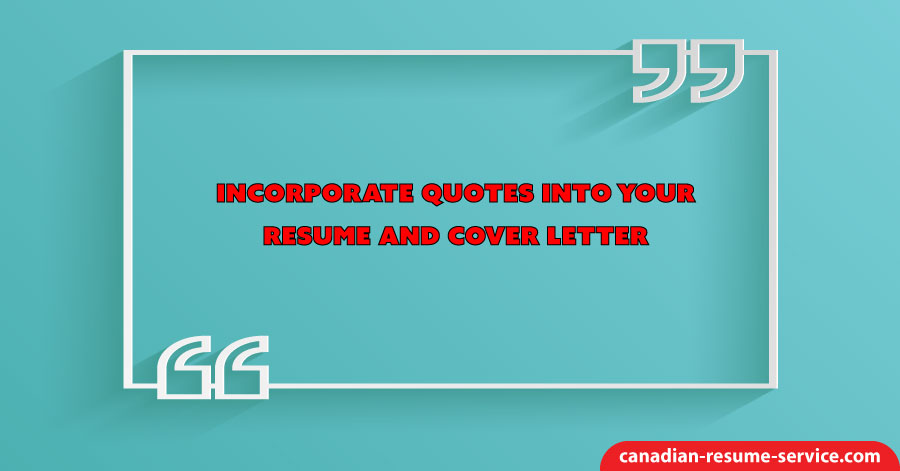Incorporate quotes into your resume and cover letter to make your documents stand out. When an employer writes an annual review, develops a letter of recommendation for you, or even sends a nice compliment on your work, ensure you file it away for future use.
These comments can be powerful tools to help you stand out amongst other candidates. Extract quotes and testimonials and incorporate them into your resume and cover letter. When a person in charge of hiring reads these quotes, it shows that your skills are concrete and you have been an asset to past companies or organizations.
Where to Place Quotes
The best spots to place these quotes in a resume are either after your areas of expertise or at the end of the document. You can also put them in other resume areas to fill extra space. Make sure you use them sparingly (perhaps one or two per document) and do not look awkward or out of place.
The testimonial from a past employer or co-worker should be put in quotation marks and italicized, followed by a dash, the person’s name, rank, and place of work (all in regular lettering). To make the lines stand out even further, use light background shading. You don’t want the testimonials to detract from your solid credentials and experience but serve as an excellent complement to your resume.
Make sure the quotes you use are up-to-date. A testimonial from the past few years is better than one from 20 years ago. Also, if you have many different quotes, find one or two most relevant to the position you’re applying for.
For example, if you’ve recently switched careers from sales representative to finance, find a testimonial that portrays your leadership, analysis, and customer service skills.
Which Quotes to Choose
Finally, suppose more than one individual has provided you with the material you can reference. In that case, it’s better to choose a quote from someone with a higher position within the organization or who directly supervised you. For example, it’s more fitting to use a testimonial from a manager directly above you or a supervisor instead of a co-worker in the same position you do.
A quotation or testimonial can effectively sell your skills and experience to employers. This is because you usually speak on your behalf in a resume and cover letter.
If you incorporate a testimonial from a past supervisor, you have someone else speaking on your behalf who is an authority figure—which speaks much louder than your own words. This makes having quotes and testimonials extremely effective.
Need additional help? Reach out to Candace to learn more!

